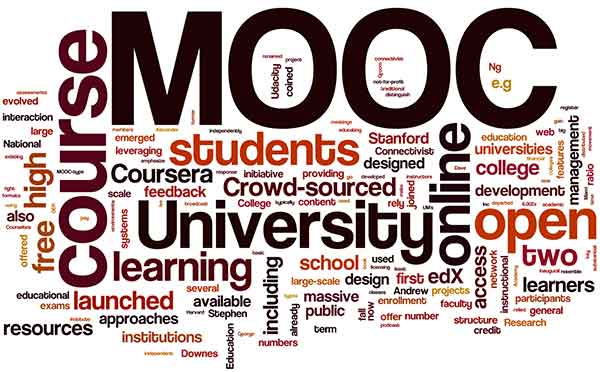
According to the New York Times, 2012 was the year of the MOOC – a massive open online course. These courses are usually open access and free, and although they don't usually offer course credit for participants some do offer certifications of completion. They can be attended by hundreds of thousands of students at the same time who interact in community forums surrounding course materials and resources. They offer amazing opportunities for those who lack the funding to attend traditional universities, especially those in developing nations. MOOCs have democratized learning and opened up education to the masses who may now attend and learn from quality courses at elite universities as if they were enrolled.
Born of the Open Education movement, MOOC's have risen to remarkable levels of popularity over the past few years with offerings from such high-ranking colleges and universities as MIT, Harvard, Yale, Duke, and more. But not everyone is sold on this new format of remote education. In addition to their many benefits, MOOCs do pose several challenges. The responsibility for evaluating the quality of participation and even the completion of these online courses falls squarely on the shoulders of the student. MOOC professors, even with the aid of teaching assistants, cannot hope to provide meaningful feedback and assessment to hundreds of thousands of students taking part in these courses. In addition to the lack of student evaluation, many people criticize the absence of face-to-face interaction with professors and other students. There's also the research aspect of these courses which may necessitate access to vendor databases and/or toll-access journals, although many of these courses have avoided copyright and access challenges by utilizing open access reading assignments. Additionally, plagiarism is said to be a major issue in these courses.
Despite the challenges involved, MOOCs have demonstrated that they offer valuable educational opportunities to millions of potential students and will only continue to evolve as time goes on. Already, colleges and universities are considering accreditation. I can see these courses being used as supplements to traditional college courses as well as for fulfilling language and other prerequisites for enrolling in traditional courses, as well as for college prep. Additionally, colleges and universities could offer their own MOOCs or MOOC degrees for enrolled distance learners such as the Georgia Institute of Technology's upcoming master's degree in computer science. Moving forward, the future of MOOCs looks like a bright one as higher education institutions continue to consider how they will offer students credit and also monetize these massive online courses. Here's a quick guide to MOOC resources for further reading:
History of MOOCs
- Wikipedia entry for MOOCs
- Online Education (MOOCs) Chronology – New York Times
Major MOOC Providers
- Udacity – Created by Stanford University
- Coursera – the largest MOOC provider with 542 courses from 107 educational institutions
- edX – Created by Harvard & MIT, course offerings from other ivy-league schools
MOOC Aggregators
- OEDb – Over 10,000 open courses
- CourseBuffet – Over 700 courses listed
- Class Central – Nearly 100 courses listed
- Top 100 Open Courseware Projects – iLibrarian
MOOCs and Libraries
- MOOCs & Librarians Presentation – ACRL Virtual World Interest Group
- Librarians and the Era of the MOOC – SciLogs
- A New Polemic: Libraries, MOOCs, and the Pedagogical Landscape – In the Library with the Lead Pipe
- What do Librarians Need to Know About MOOCs? – D-Lib Magazine
The Future of MOOCs
- OPINION: Are MOOCs Really the Future of the University? – EdSurge
- MOOCs and the Future of the University – Inside Higher Ed
- Bryan Alexander on the Future of MOOCs – Educause podcast
- MOOCs: The Future of Higher Education? – Top Universities
- The future of MOOCs – E-learning Provocateur
- Into the Future With MOOC's – The Chronicle of Higher Education